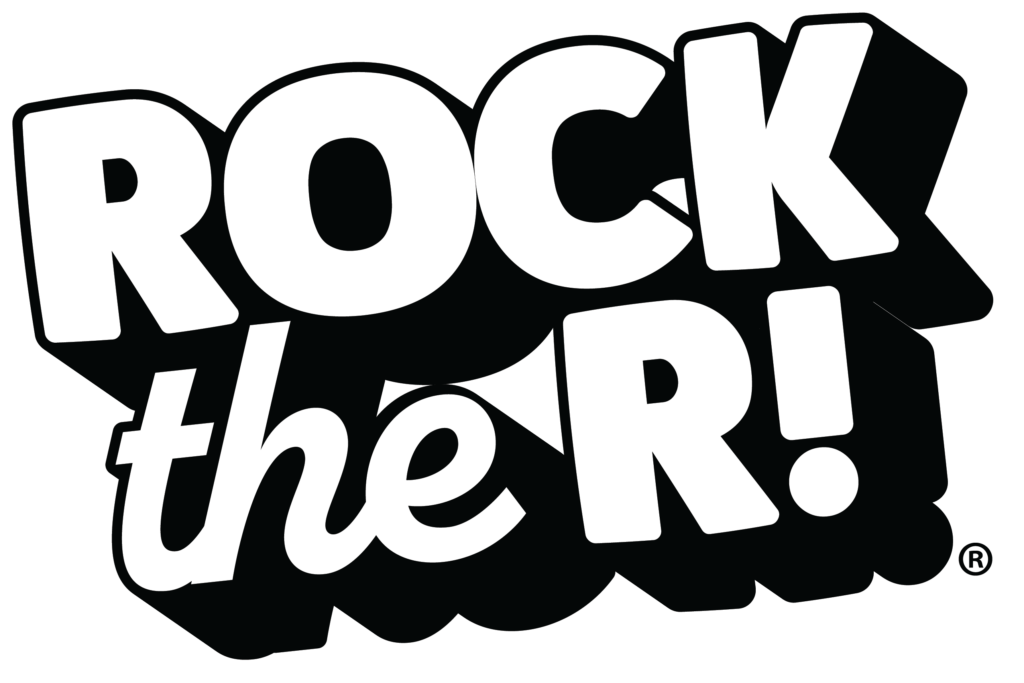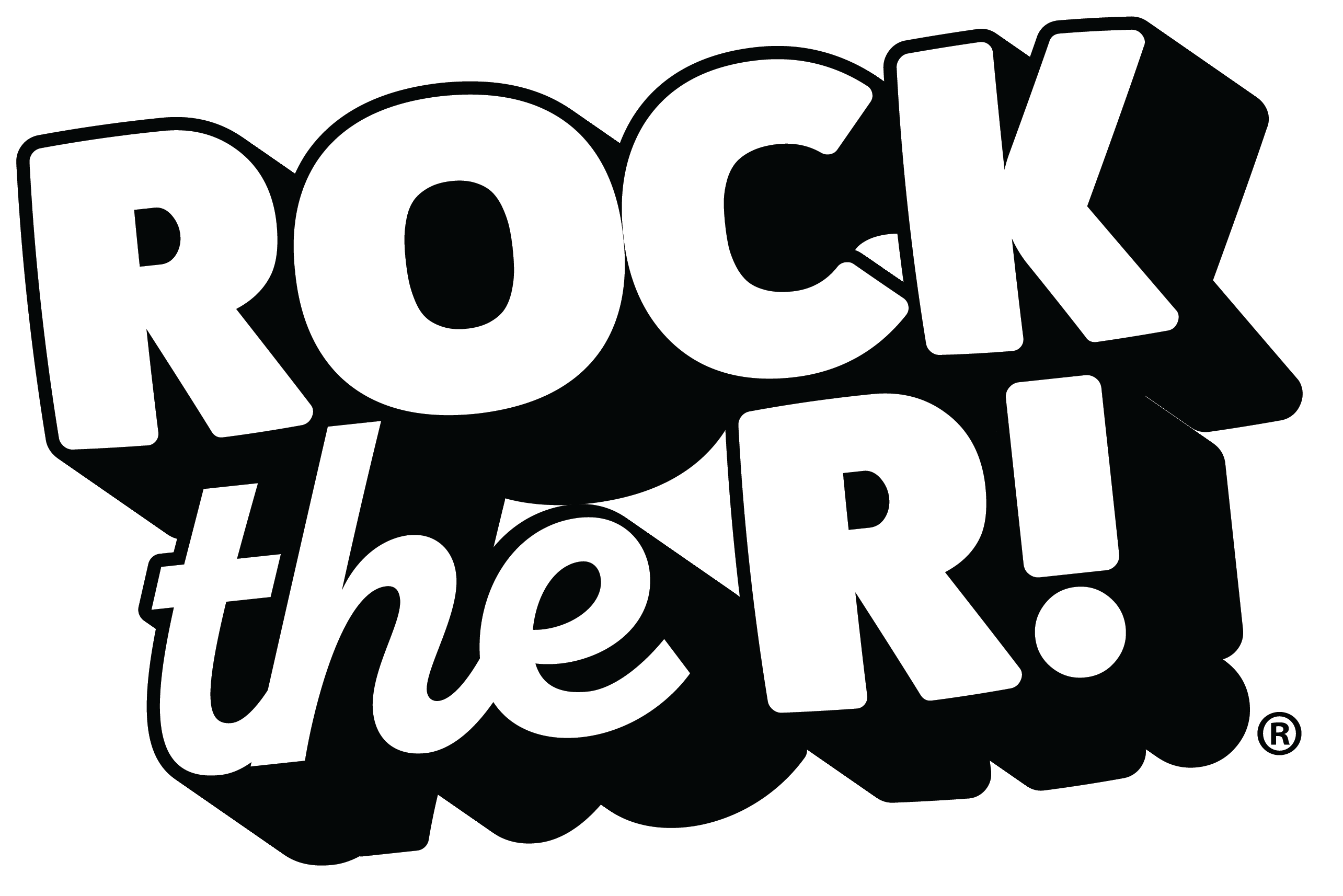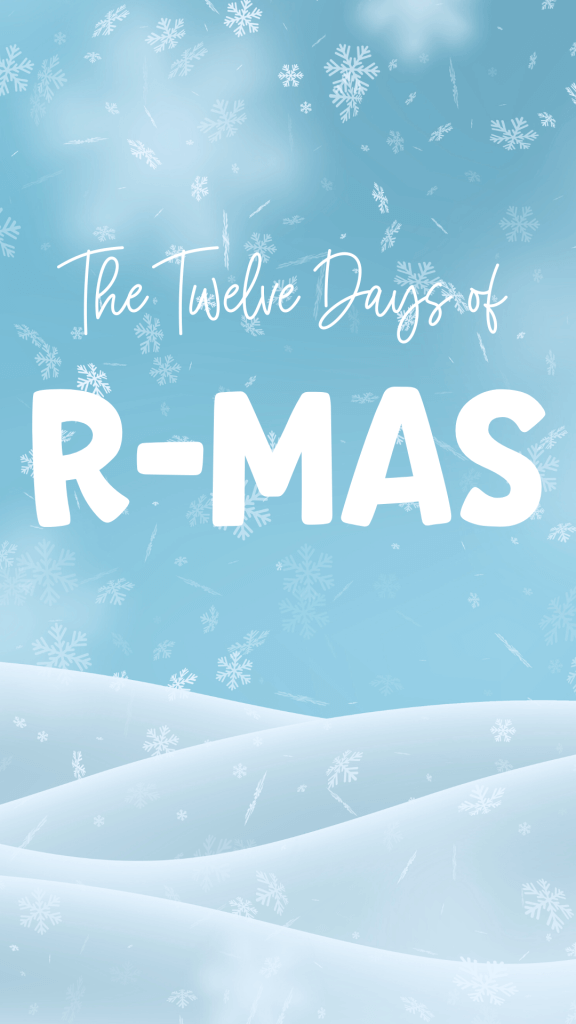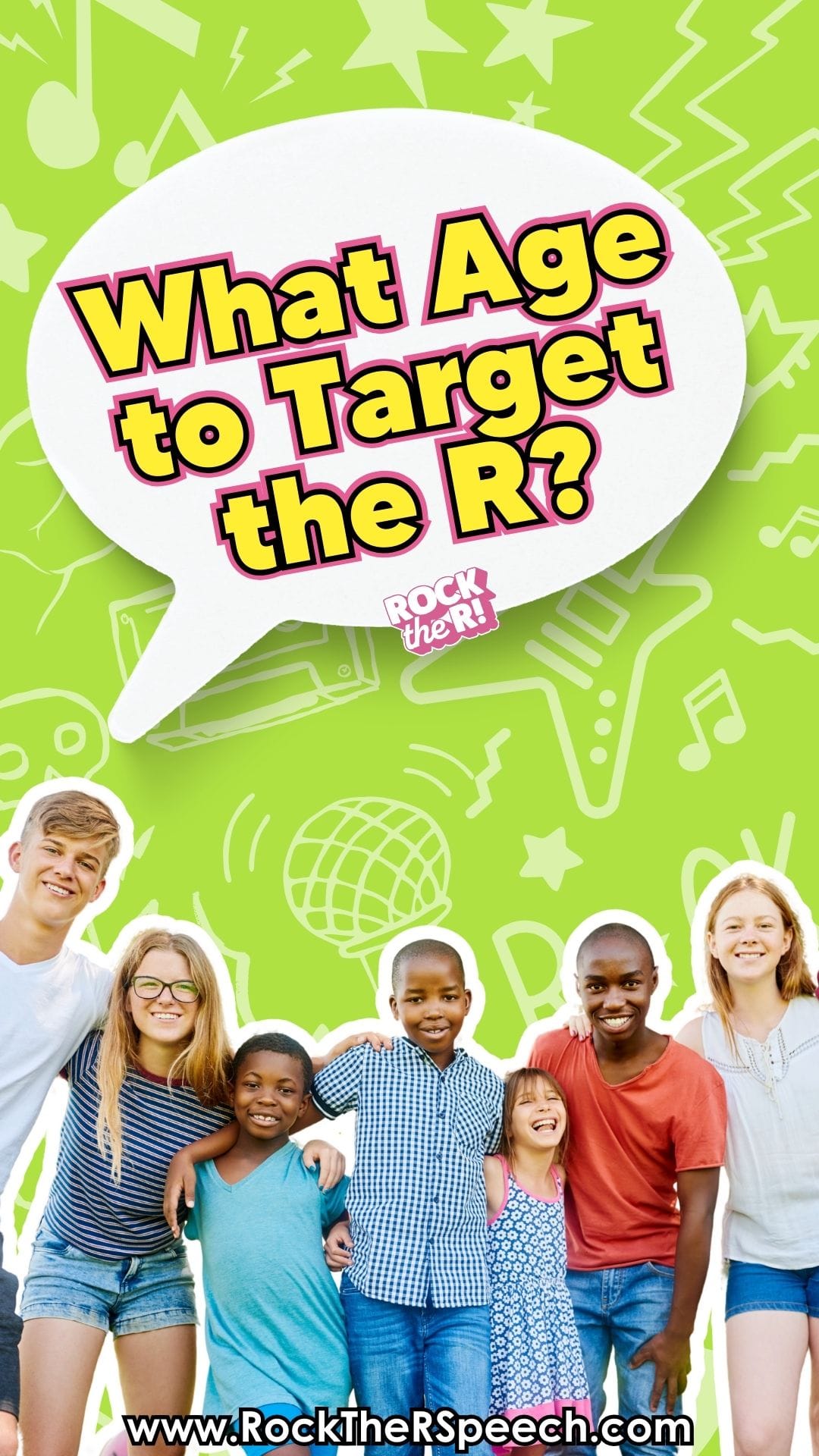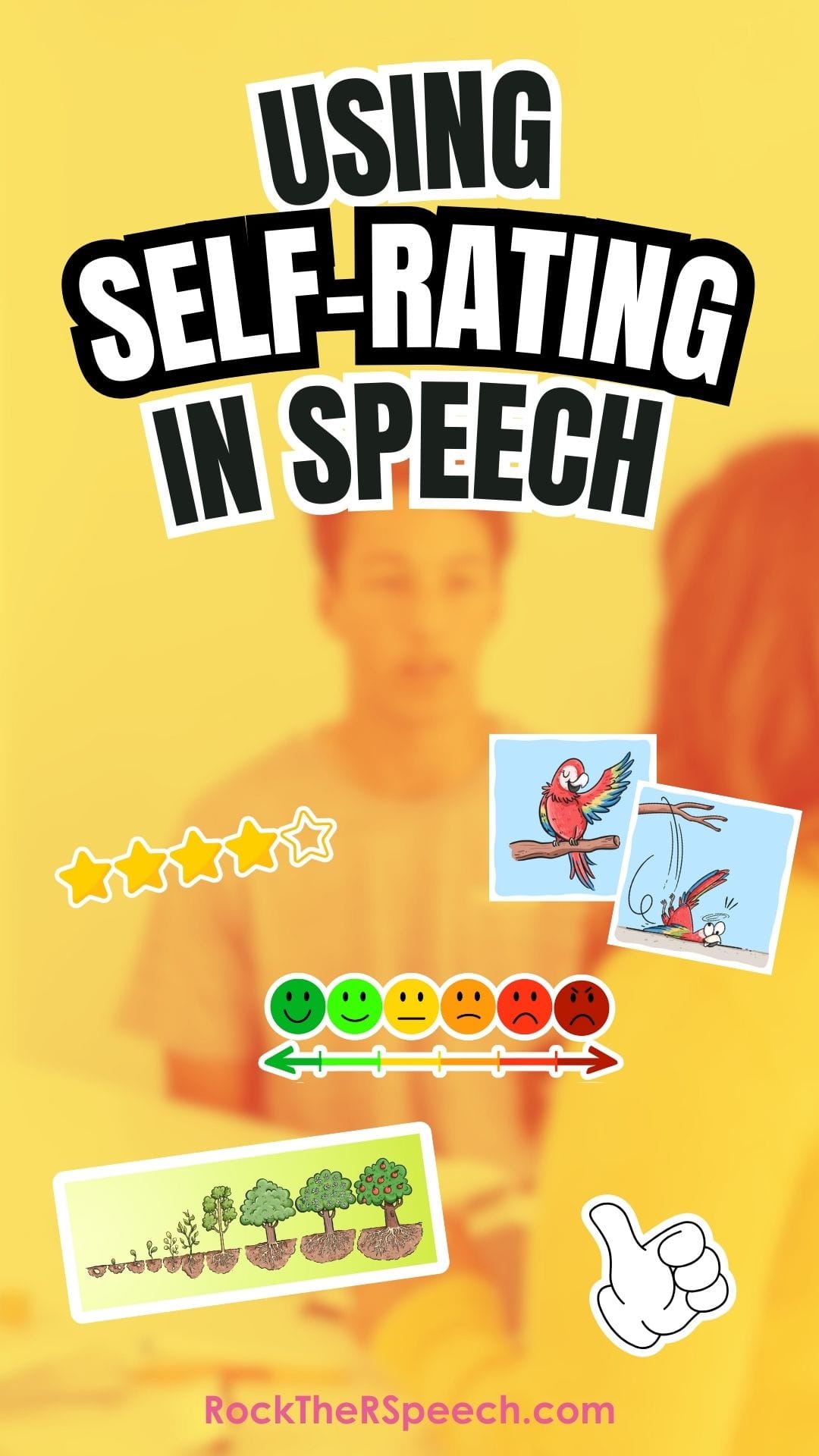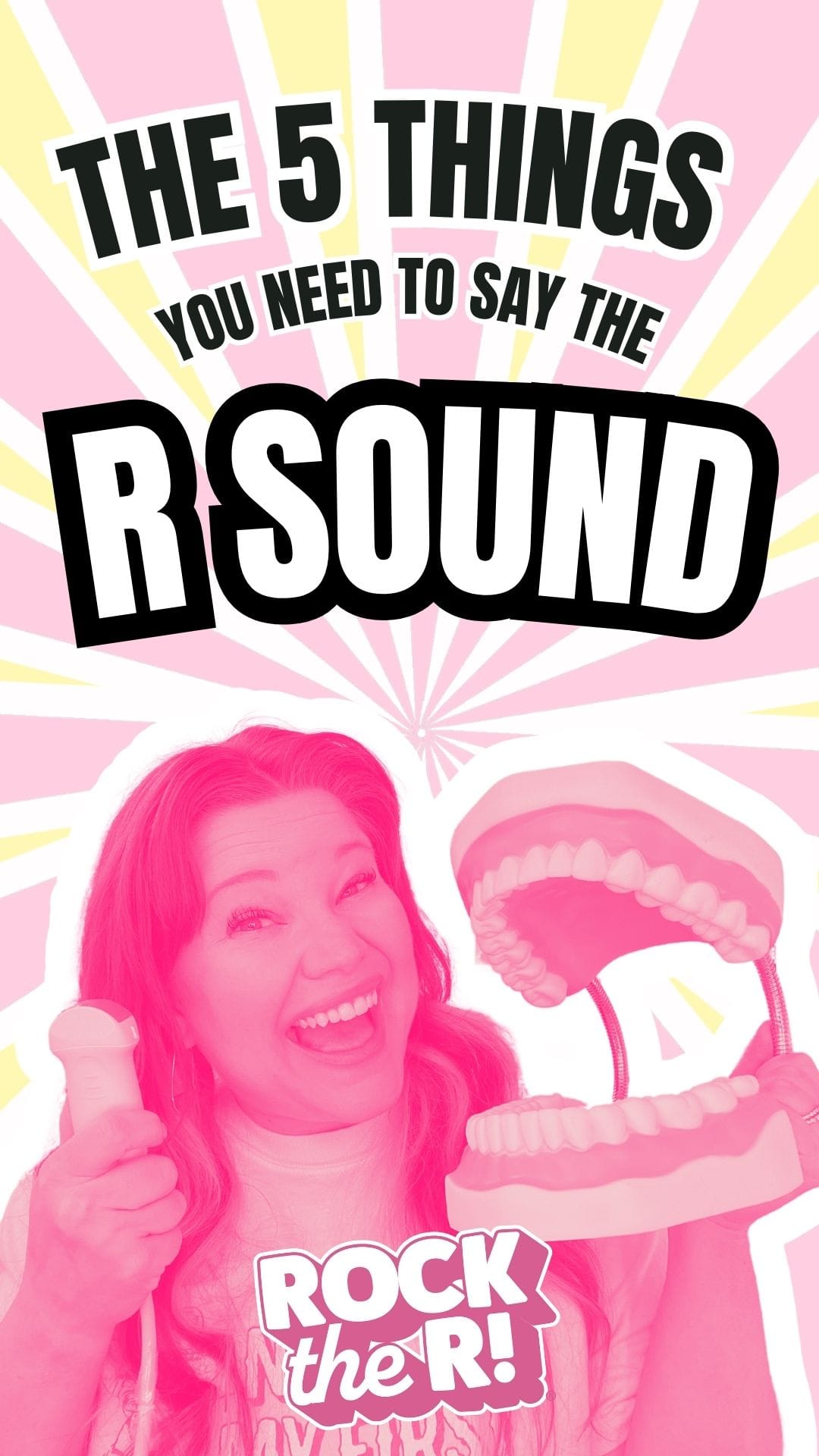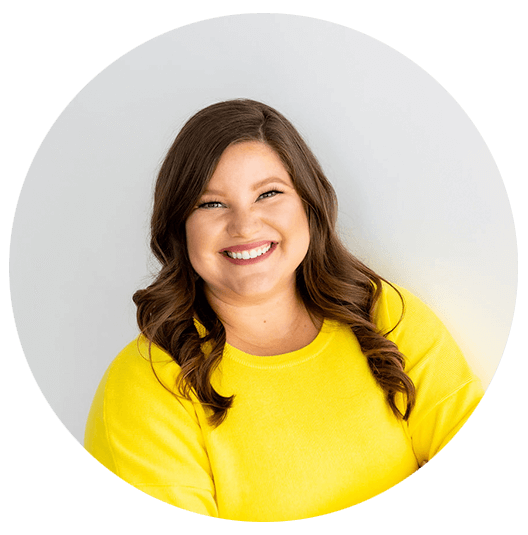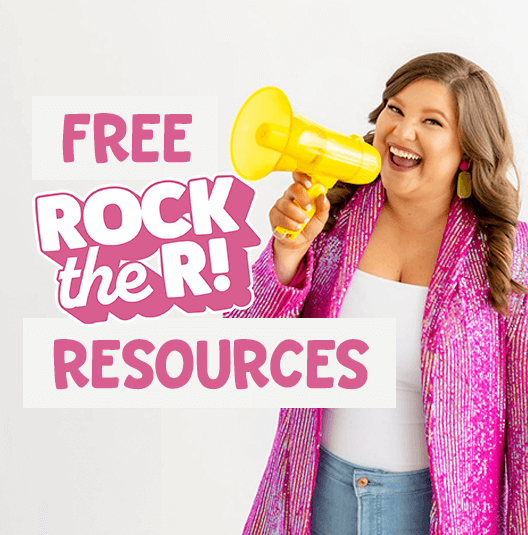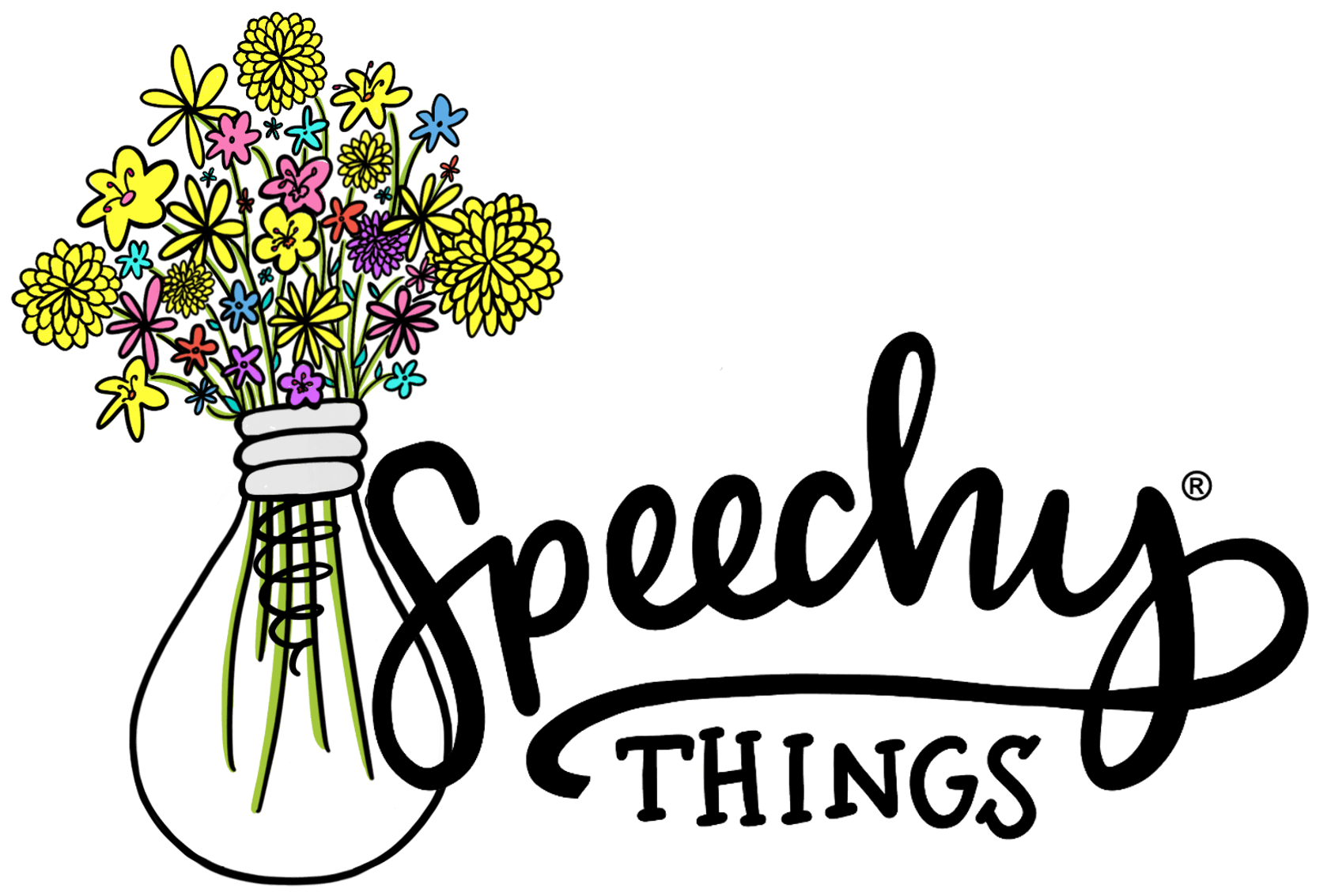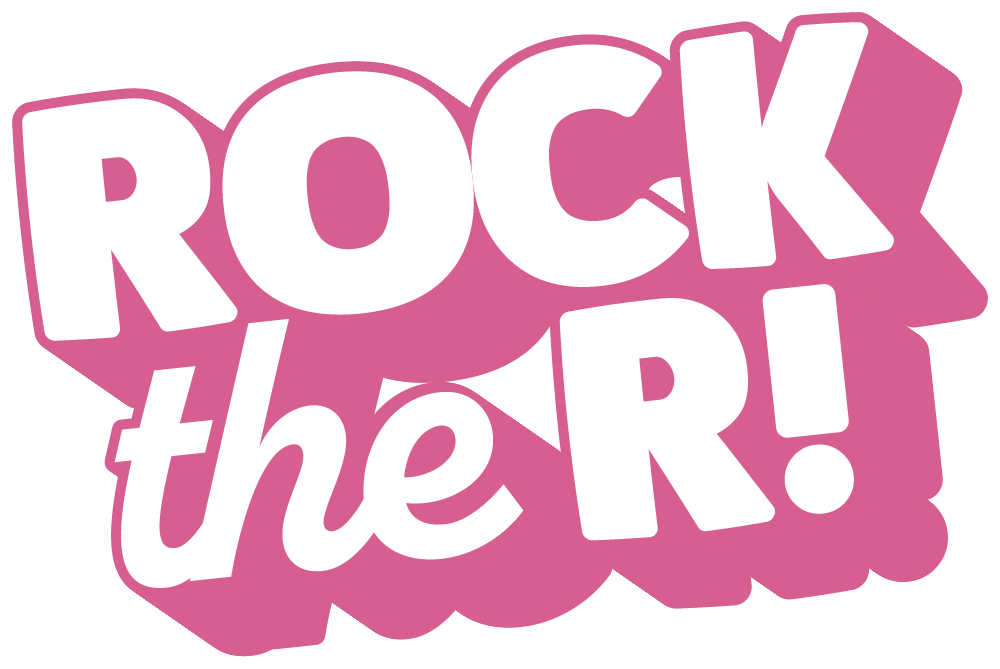The 12 Days of R-Mas is a free event I host on Instagram in December. The concept is to share EBP and tips related to the R sound, based on the numbers 1-12. This year, in celebration of my upcoming R Assessment, I themed R-Mas on (you guessed it) R Assessment! Here is a brief re-cap in case you missed it. For more information, head over to Instagram to read the full captions and my stories highlight for further discussion.
On the first day of R-Mas my true love gave to me…
More than ONE way to approach R therapy!
Every student is so different. You truly need a thorough evaluation to get the full picture of their speech sound disorder.
On the second day of R-Mas my true love gave to me…
TWO ways of producing the R sound- bunched and retroflex. HOWEVER there’s evidence to support that many people actually use something in between. In our assessments, we may be better off casting a wide net to see how we can get the best approximation possible. Trial therapy is so important for this.
On the third day of R-Mas my true love gave to me…
THREE levels of modeling: simultaneous production, direct imitation, and delayed imitation. When looking at a student’s R inventory and conducting trial therapy, modeling is an excellent maximum support to try.
On the fourth day of R-Mas my true love gave to me…
FOUR key components to check during your oral mech exam: tongue retraction, tongue side elevation, tongue tip elevation, and proprioception. You can try giving verbal commands to see if they’re able to achieve these placements, then the only trick is doing them all at the same time for R.
On the fifth day of R-Mas my true love gave to me…
FIVE years to get the R sound… according to McLeod and Crowe 2018, 90% of children can say R by age 5 1/2.
On the sixth day of R-Mas my true love gave to me…
SIX contexts in which to check R: initial R (ex: red), R blends (ex: green), final vocalic R (ex: chair), vocalic R + consonant (ex: farm), intervocalic R (earring), recurring R (ex: driver)
On the seventh day of R-Mas my true love gave to me…
SEVEN professionals to ask about during your case history: OT, PT, ENT, Dentist/Orthodontist, Psych/Counseling, Chiropractor, and Allergist. But let’s throw in other SLPs and myofunctional therapists as well.
On the eighth day of R-Mas my true love gave to me…
EIGHT questions you can ask your student to get to know them, build rapport, and achieve buy-in.
- What do you do for fun?
- What is your favorite thing about school?
- What feels hard about school?
- How do you feel about your speech?
- How well do people understand you when you talk?
- How do you feel when talking in front of your class?
- What do you do if someone doesn’t understand what you said?
- What do you want me to help you with in speech?
On the ninth day of R-Mas my true love gave to me…
NINE components to include in your R Assessment:
- Case history questionnaires
- Conversation sample
- Oral mech
- Speech perception
- Phonemic awareness
- Phonology (gliding in particular for us)
- R inventory
- Trial therapy
- Parent summary
On the tenth day of R-Mas my true love gave to me…
TEN cues for eliciting the R sound during trial therapy:
- “Make a tiger sound”
- “Shape your tongue like a bowl”
- “Say, ‘karla’”
- ”Pull your tongue back into your throat”
- “Make a pirate sound”
- “Get the sides of your tongue up touching your molars”
- “Move the sides of your tongue up like a bird’s wings”
- “Say, ‘earring’”
- (Touching the back of their head)”Pull your tongue towards my finger”
- ”Make sure your tongue tip is higher than the back middle of your tongue.”
On the eleventh day of R-Mas my true love gave to me…
ELEVEN ways to tease out whether the student has an articulation disorder, a phonological disorder, or (more likely) both.
- rate productions- both speaker & self
- compare productions- speaker & self
- identifying phonemes
- blending phonemes
- segmenting words/phonemes
- substituting phonemes
- reading & writing real words
- reading & writing nonsense words
- IDing R vs W minimal pair words
- IDing words from an auditory model
- comm partner ID student’s word, student grades
On the twelfth day of R-Mas my true love gave to me…
TWELVE final thoughts on R assessment and treatment:
- It’s important to build rapport in the eval. If you push too hard too soon you won’t get an accurate picture of what the kid can do.
- Self-rating and judgment is a key to generalization and that starts from day one in the assessment- don’t skip that.
- It’s okay if you don’t get it all figured out during the eval. We continually assess throughout therapy.
- If you don’t feel confident in treating a particular kid, it’s MORE than ok to ask for help! There’s no way for us to know it all.
- Really try to tease out where the student is on the speech sound disorder spectrum. Appropriate treatment will often require a combined artic-phonology approach.
- If there’s a student who has been in therapy forever and is STILL stuck on R. Don’t give up. Re-evaluate then from scratch with fresh eyes and see what you may have missed before.
- It’s ok if the first thing you work on is building rapport and getting buy-in. That IS productive.
- Don’t give up on your student or on yourself!
- Don’t skip the oral mech. Lay eyes on that kid!
- Don’t sleep on speech perception!!!
- Use a critical eye to tease out the PATTERNS that are associated with each students’s errors. It may help you figure out a more efficient way to treat them.
- R is hard. It’s ok if it feels like a struggle sometimes. You’re far from alone!
I hope this info is helpful to you! It gives you a glimpse into the detail and thought process behind the R Assessment I am developing. It’s definitely a topic I’m passionate about so if you have any questions about R Assessment, stay tuned to my email list! I’ll be sharing more where that come from. By signing up you get access to my freebie library, including the freebies below.
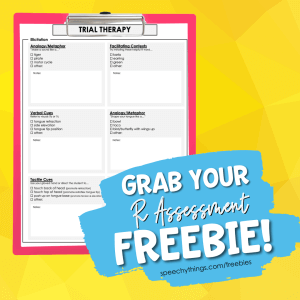
Cheers!



